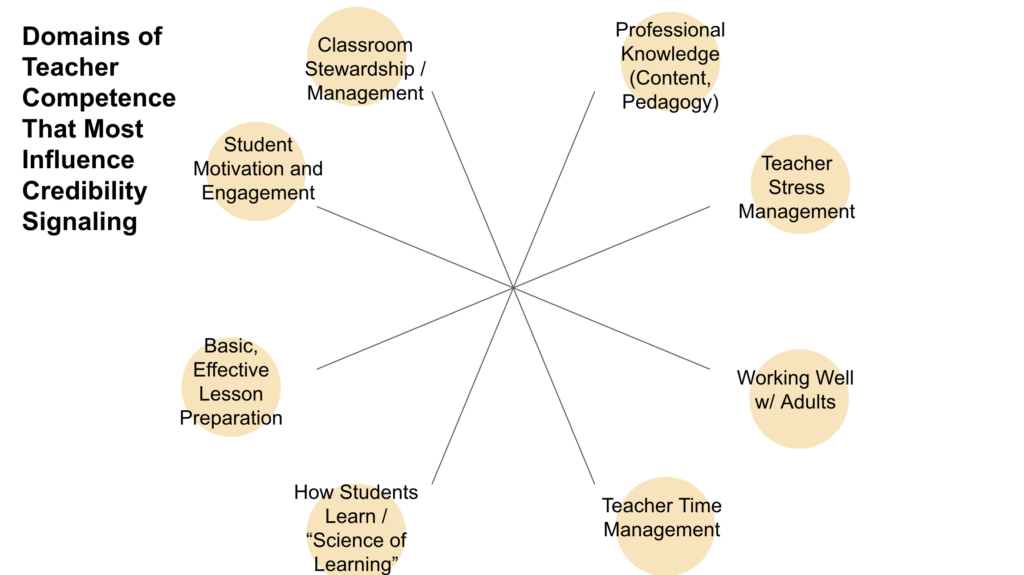Something a lot of us teachers need reminding of is that becoming Credible in the eyes of a student has little to do with becoming a perfect teacher or doing everything at the level of total excellence.
Instead, our students' hearts are much more gracious than this; they long not for our perfection but for our competence.
In my experience, not all areas of teacher competence are equally salient to our students. But there are at least eight areas of competence that I've noticed reap the most reliable gains in teacher Credibility.

In that graphic above, there's sort of a right-left relationship I'd like to point out.
The domains on the left are those that you can practice during instruction, and as a result they'll have the most immediate effects on your Credibility:
- Classroom Stewardship/Management – that is, understanding the group psychology of the classroom and the methods that work best for creating a learning-conducive environment in which everyone feels heard, known, valued, and safe.
- Student Motivation and Engagement – that is, knowing how and why to cultivate the Five Key Beliefs in your classroom.
- Basic, Effective Lesson Preparation – that is, what lesson chunks work well in your course(s)? What kinds of activities can you use again and again for the sake of optimally advancing student mastery?
- How Students Learn/“Science of Learning” – that is, what are the core mechanics of the learning mind, and how do we create lessons and units that empower students to use and build their minds optimally?
The domains on the right are those that you can practice outside of instruction, and as a result they'll tend to have a slower but still important effect on your Credibility:
- Professional Knowledge (Content, Pedagogy) – that is, pursuing a deep understanding of the content you are teaching and the ways students understand and misunderstand that content.
- Teacher Stress Management– that is, knowing how to manage your life and stress amidst being an educator.
- Working Well with Adults – that is, being a capable communicator and problem-solver with parents, guardians, colleagues, and bosses.
- Teacher Time Management – that is, knowing how and when to apportion your time so that you get work done at work and have an easier time getting nights and weekends to yourself.
And with all this, it's critical to grasp that perfection isn't what you're after. I'm perfect in exactly zero of the domains pictured above. But, by focusing my self-improvement efforts over the last handful of years, I do think I've grown increasingly competent in all of these areas, and that has made both my job and the jobs of my students much more effective and enjoyable.
Perfection is not the goal. Competence is.
Best,
DSJR
P.S. That graphic above is one of many that I developed for my upcoming book, The Will to Learn, which should be out in April of 2023. Mark your calendars! Tell your bosses. And stay tuned to this newsletter.
Leave a Reply